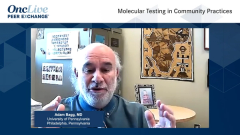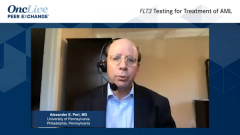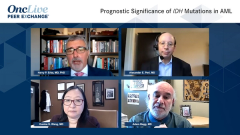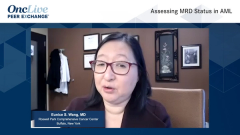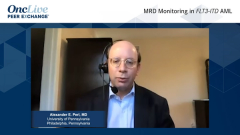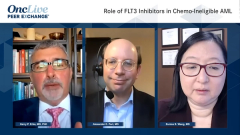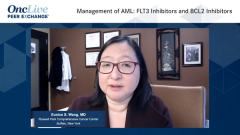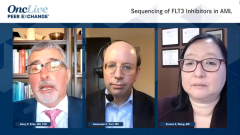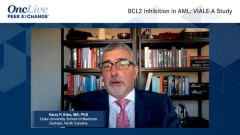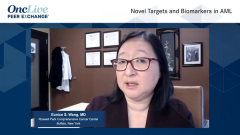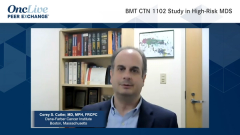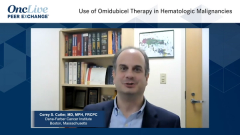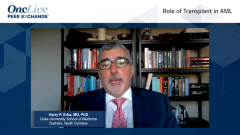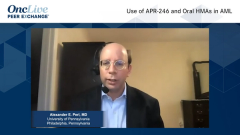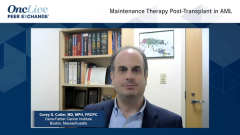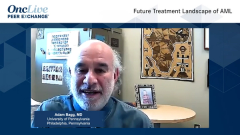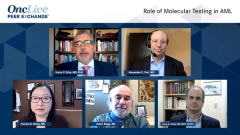
Prognostic Significance of IDH Mutations in AML
Episodes in this series

Harry P. Erba, MD, PhD: Let me turn briefly to a comment about IDH as another gene. IDH1 and IDH2, when mutated, are targets, but there has been a lot of discussion in the literature about the prognostic significance of IDH mutations. At the 2020 ASH [American Society for Hematology Annual Meeting], there was a presentation by Dr Sara Zarnegar-Lumley from Vanderbilt University Medical Center that looked at over 3500 patients with acute myeloid leukemia [AML] who had been registered and treated on COG [Children’s Oncology Group] studies, as well as SWOG, ECOG, the TCGA [The Cancer Genome Atlas], and Beat AML. In these 3500 patients, the age went from less than 1 month to 88 years old. The majority were pediatric patients, somewhere around 2200, so it drove the analysis. In that analysis, only 8.6% had an IDH mutation, which is lower than what we usually think of in adults. As she showed, the incidence went up with advancing age, up to 20% IDH1 and IDH2 mutations in older individuals. In this data set of 3500 patients, they showed that IDH mutation did not demonstrate any independent prognostic determination on outcome, but the co-occurrence with nucleophosmin mutation and IDH1 favorably impacted outcomes.
One of the difficulties with her study is that the older patients she looked at mostly came from the Beat AML study. As we all know, it did not use intensive chemotherapy; the ECOG, SWOG, and COG studies did. It’s a bit harder to discern the prognostic significance there. It was interesting that they did not have enough patients with the isolated IDH2-R172 mutation, shown by Elli Papaemmanuil to be a group of patients who seemed to have a better prognosis: those who had DNAMT3A mutations but not others. That wasn’t seen here, and again, it was probably because the age was skewed toward younger patients. I wanted to give that 1 little update about IDH: It doesn’t appear to be independently prognostically significant.
Transcript Edited for Clarity


